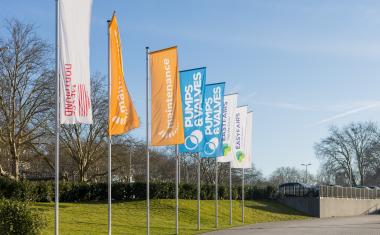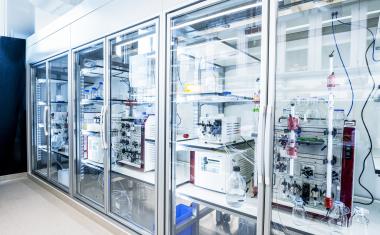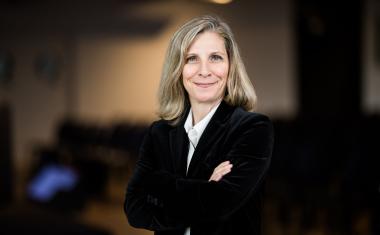BioMarin Won't Sell Itself for 25-30% Premium
BioMarin Pharmaceutical, which makes high-priced drugs used to treat rare diseases, would not consider a buy-out offer for even a 25-30% premium, according to the company's chief executive officer.
"The best way to prevent that (a takeover) is to keep the stock up, and we are doing that," CEO Jacques Bienaime said during an interview at the JP Morgan Healthcare Conference in San Francisco.
He said any decision to sell would come from large shareholders, not him nor the board.
Big pharmaceutical companies are seeing patents expire on many of their older, best-selling products, which will spur competition from lower-priced generic drugs. Many of these companies are interested in drugs for rare diseases, which can command prices well over $100,000 a year. Sanofi's 2011 acquisition of Genzyme is the largest such takeover deal so far.
But Bienaime questioned whether it makes sense for traditional large pharmaceutical companies to enter the market for so-called "orphan drugs."
"They don't understand this," he said, adding that much of the talk at big pharma surrounding orphan drugs is on the scientific side - not the business side.
And, given the increased focus on rising healthcare costs, he said it is less politically feasible for a big pharma company to launch a drug with an annual price tag of $400,000 than it is for smaller company such as BioMarin.
The company, which generates annual revenue near $500 million, expects to file by the end of March for U.S. approval of GALNS, an enzyme replacement therapy designed to treat Morquio A syndrome, a rare, inherited disorder that causes skeletal dysplasia, short stature and joint abnormalities. There is currently no approved treatment for the disease.
The launch of GALNS would double sales at BioMarin to $1 billion a year, said Bienaime.
More than a quarter of the 39 new medicines approved in the United States last year were designated for such conditions.
BioMarin's market capitalization is near $5 billion. It now has four drugs on the market, two of which treat other metabolic disorders caused by the absence of certain enzymes.
But the company's biggest product could be a cancer drug currently known as BMN673. It belongs to a class of drugs called PARP inhibitors that help kill cancer cells by blocking an enzyme important in repairing DNA damage.
"It is by far the most potent PARP inhibitor out there," Bienaime said during an interview here at the JP Morgan Healthcare Conference, noting that around 8% of breast cancer patients diagnosed each year have the genetic mutation targeted by PARP inhibitors.
The company expects to present data from Phase 2 trials of the drug, including breast and ovarian cancer, in late May or early June at the annual meeting of the American Society for Clinical Oncology.
Bienaime said BioMarin has the financial ability to develop the cancer drug on its own.
"We have no plans to change our strategy. If you have the only therapy, you have pricing leverage," he said.
Bienaime also said that the cost to the healthcare system of orphan drugs is less than it might seem. "These patients are not going away," he said. "They require very expensive care."
The CEO estimated that the total market for the "ultra orphan drugs" coveted by BioMarin - meaning treatments aimed at patient populations of under 10,000 - now totals around $5 billion.


















